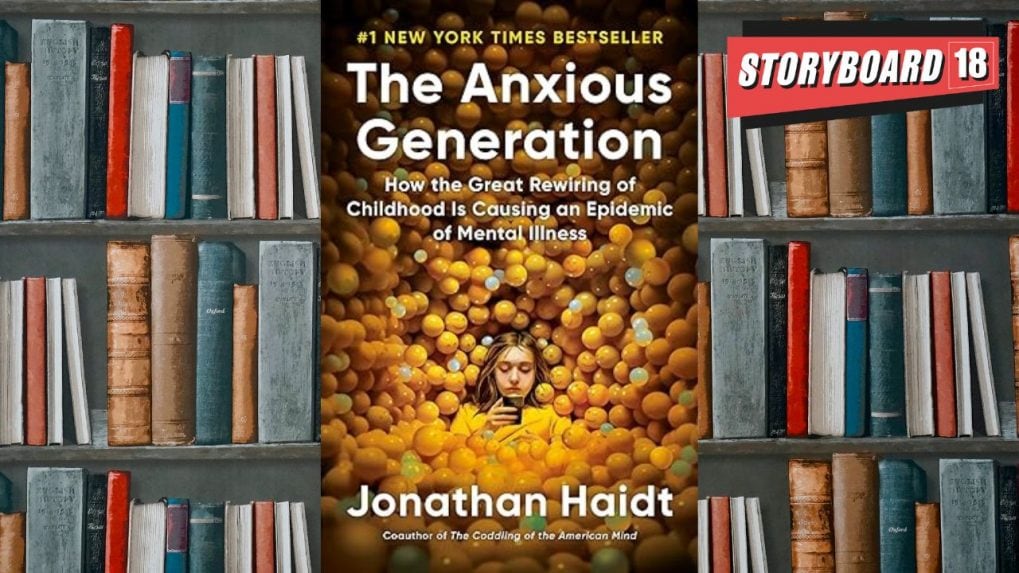Bookstrapping: The Anxious Generation by Jonathan Haidt
As per the review by Reeta Ramamurthy Gupta of 'The Anxious Generation' by Jonathan Haidt, apart from social media creating an obsession among girls to embrace perfection, heavy addicts of social media reported higher levels of depression as compared to non-users.
ADVERTISEMENT
How the front-facing camera in smartphones messed up adolescents!
Which was the first phone with a front facing camera that changed our lives forever? Tough one, even though this was so recent. It was the iPhone 4, introduced in June 2010!
The author refers to the period 2010 to 2015 as the ‘Great Rewiring of Childhood’, not just in America but most Western nations. Thanks to the introduction of ever more powerful filters and editing softwares, the reflection that each girl saw in her mirror got less and less attractive, relative to the girl she saw on her phone. As the lives of girls moved on to social media platforms, boys buried themselves deeper into multiplayer games, YouTube, Reddit and even porn!
The problem was that every thing was free and engineered to be addictive, in this alternate world. Adolescents lost the ability to be fully present with people around them. This not only changed social life for them forever, but also for the minorities that did not use these platforms!
Whew! That was quite a mouthful. Jonathan Haidt is the professor of ethical leadership at NYU Stern and he knows a thing or two about the psychology of morality and moral emotions! Wow! Thats some specialisation! And this is his third book.
Here are our five Bookstrapping insights:
1. The book is divided into four parts
Part 1: Mental health trends among adolescents since 2010
Part 2: The nature of childhood and how we messed it up!
Part 3: The harm that results from the new phone-based childhood
Part 4: What we must do now to reverse the damage in our families, schools and societies
The author offers a way out, highlighting that change is possible, only if we act together.
2. Talking about the benefits of free play that we all indulged in as kids, Haidt says that the small challenges and setbacks that happen during ‘play’ are like an inoculation that prepares children to face much larger challenges later! He laments how free play began to decline in the 1980s. This decline accelerated in the 90s. Hereafter, the rapid spread of high -speed broadband in the 2000s, arrival of the iPhone in 2007 and the like and retweet buttons that appeared in 2009, meant that the life of Gen Z would never be the same again!
3. The author says that social media harms more girls than boys! Explaining the obsession of girls with perfection triggered by social media, the author cites a song by Olivia Rodrigo
“I kinda wanna throw my phone across the room Cause all I see are girls too good to be true!"
He shares data, revealing that heavy users of social media have higher rates of depression and other disorders than non-users!
4. The author also points out that a phone-based life often fills 'our life's search for meaning' with trivial and degrading content! But are we really passive victims of big tech? Or are we consciously choosing a life of being misled?
5. Much like defective products are recalled from the market, Haidt says that we must consider that in 2010, most people did not know that smartphones would plunge us into a mental health crisis! Now that we are more aware, can we raise the age of internet adulthood to 16? Can we recall age 13-16 back to real play? And can tech companies find a way to verify and reject everyone below 16?
The book offers meaningful suggestions to solve the problem at hand. In that sense, 'The Anxious Generation' is a refresher about how to reclaim human life for human beings in all generations. The book reminded me of similar ones in the genre we have reviewed earlier such as Gloria Marks ‘Attention Span' and Dr Kristy Goodwin’s ‘Dear Digital, We need to talk.’
The gravitas of the issue at hand merits more conversation on this topic.
Reeta Ramamurthy Gupta is a columnist and bestselling biographer. She is credited with the internationally acclaimed Red Dot Experiment, a decadal six-nation study on how ‘culture impacts communication.’ A reading coach, you can find her on Instagram @OfficialReetaGupta


